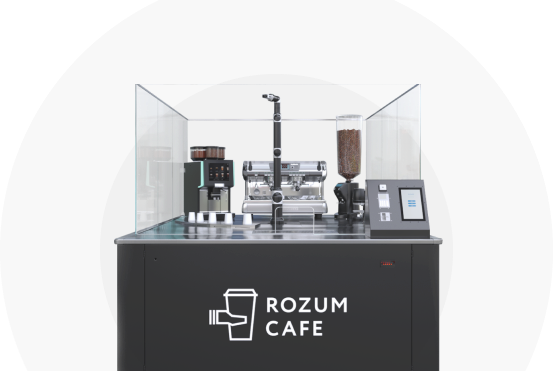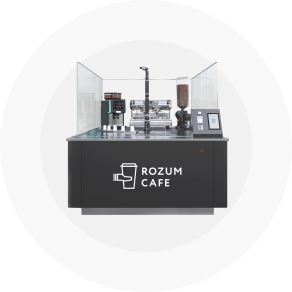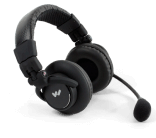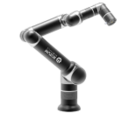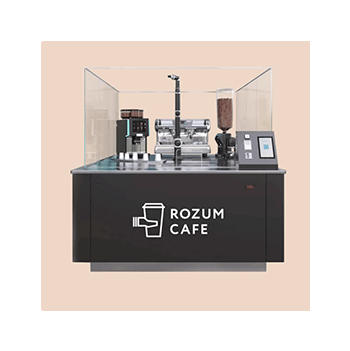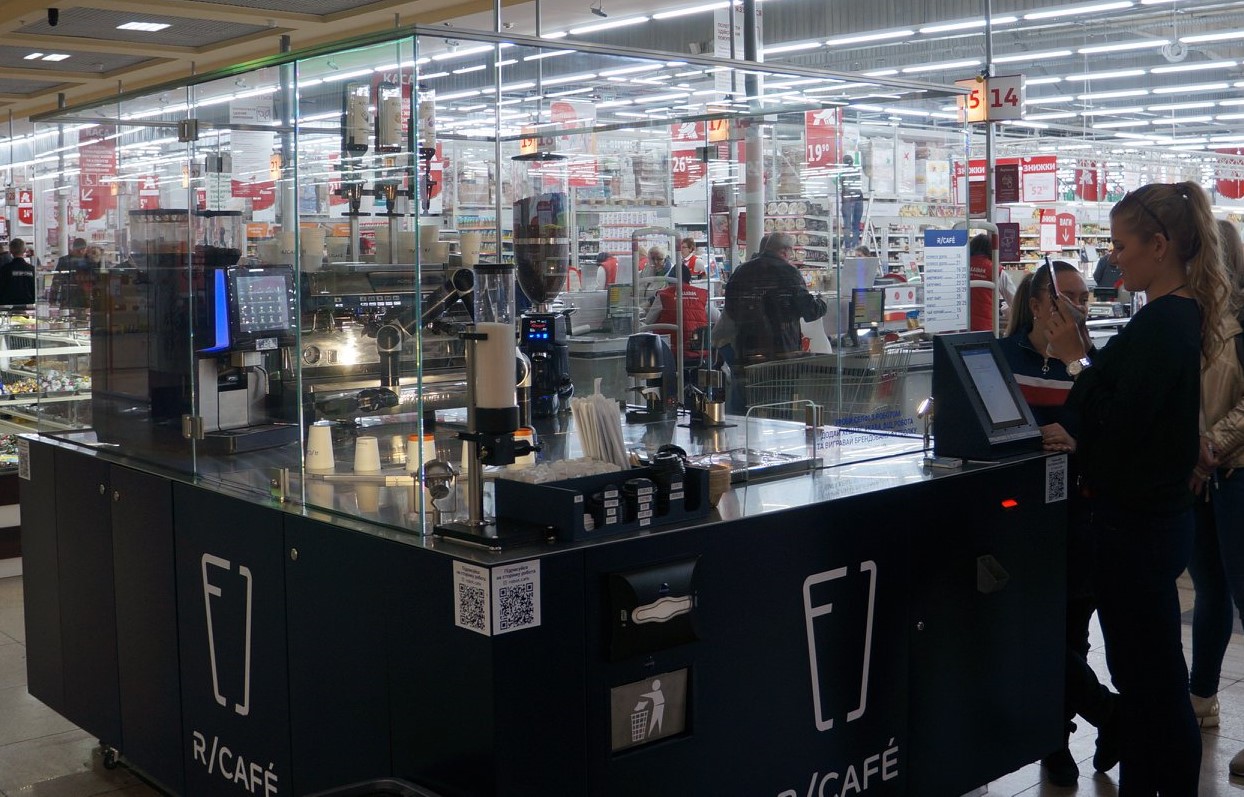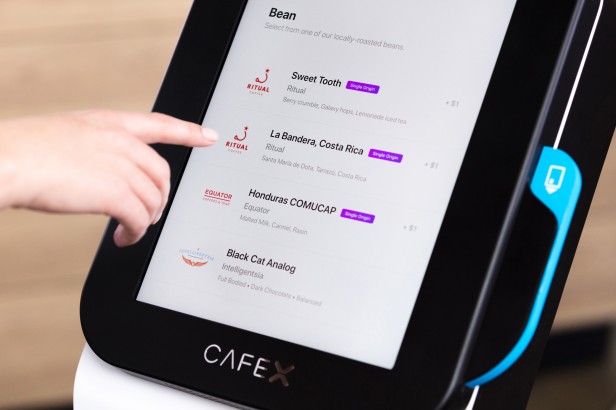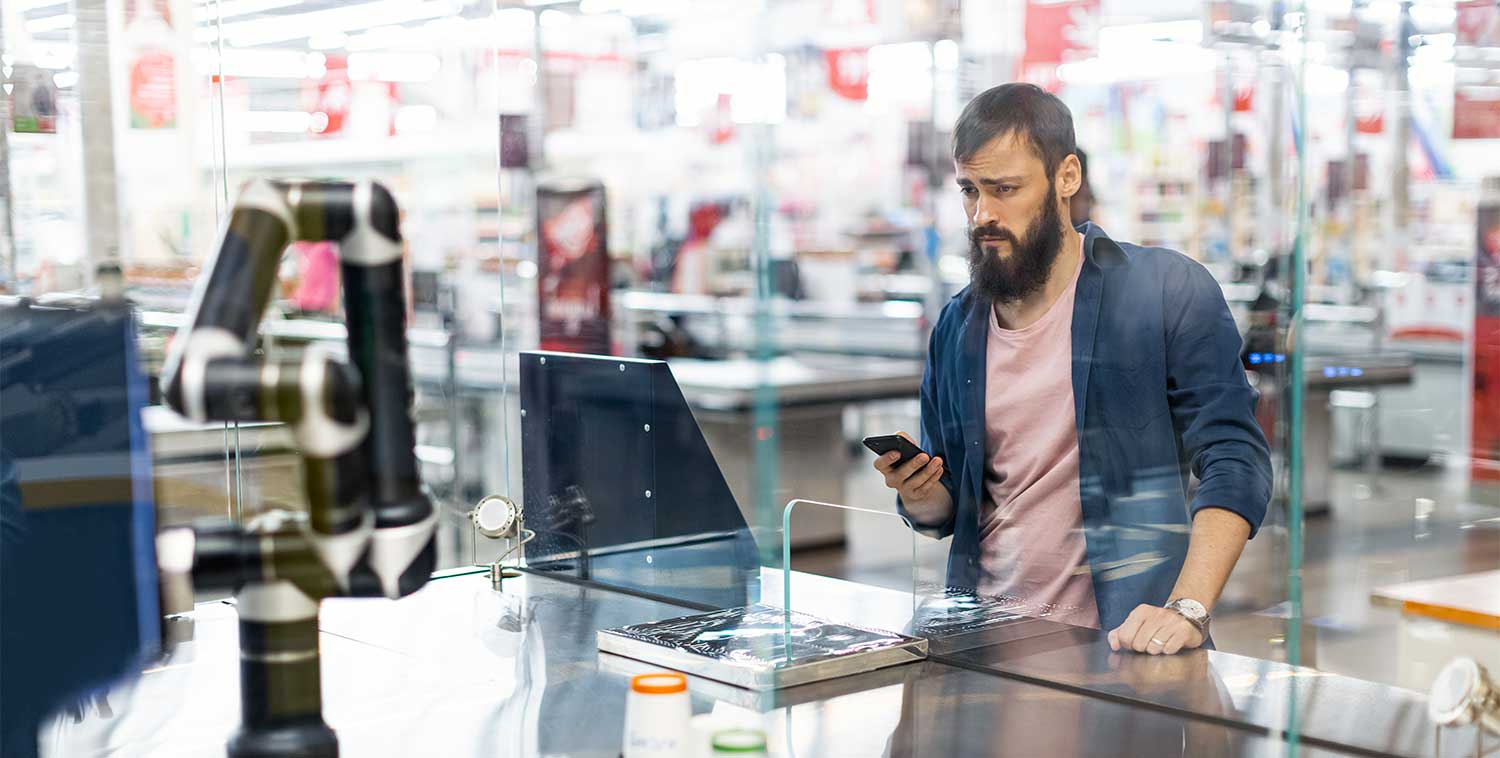Reason 1
In an industrial environment, the manipulator type provides such valuable benefits as high precision and repeatability. Precision quantifies the ability of an arm to arrive at a position as preset. Repeatability stands for its capability to reproduce the same manipulation multiple times with exactitude.
In terms of brewing, the precision and repeatability characteristics would translate into consistent reproducibility of gustatory properties, strength, etc. With the intelligence and mechanical accuracy of a robotic arm, tailoring coffee to exact individual tastes is easy.
Reason 2
Featuring up to six degrees of freedom, the robo barista enables dexterity of motion comparable to that of a flesh-and-blood server. Fitted with a suitable work tool, the robot copes perfectly with all the same tasks as a human at a coffee bar stand. It loads and grinds beans with a grinder, sets and handles an espresso machine, hands over a drink, and so on—except, perhaps, the tricky latte art.
Reason 3
The lack of artistic talent is not a shortcoming, but another argument in favor. Robotic arms are meant to do the repetitive part of a coffee serving job, leaving the customer-barista relationship intact. While you enjoy a small talk, a robot in the background brews a hot java, froths milk, adds a flavor—and passes it on ready for you.
Though a robotic arm cannot spur actual conversation (at least, yet), they are real mechanical workaholics, capable of toiling 24 hours a day, no breaks to smoke or chat, no days off. When properly configured, the capacity of the smart coffee maker is way superior to performance of a conventional barista.
Reason 4
According to the latest PayScale data, the hourly salary of a barista in the USA and Europe is around $10, which makes $80 dollars daily, $2,400 monthly, and 29,000 yearly. Add to the sum extra compensations, sick leaves, etc.—and the figure increases in a rather unpleasant proportion from the employer’s perspective.
Though the initial investment amount may seem discouraging, maintaining a robot arm to make drinks entails less overhead expenses. Even with the cost of a coffee cup at around 3 dollars, the payback period is claimed to last 18 months only.
